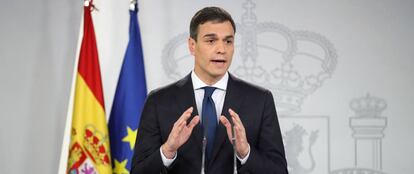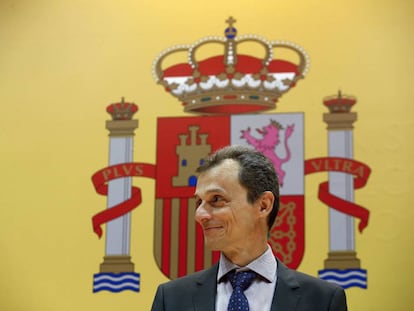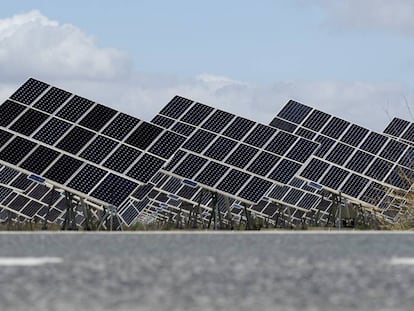A new chapter
Prime Minister Pedro Sánchez’s main task now is to repair the damage done by Mariano Rajoy’s Popular Party

The arrival of Pedro Sánchez at La Moncloa, the prime minister’s residence, and his designation of a capable government team, are a watershed in Spanish politics. Sánchez has not become the prime minister out of random luck, or because he cobbled together a negative coalition; he reached the position because he lived up to his constitutionally mandated responsibility as opposition chief, heading a no-confidence motion against a government leader, Mariano Rajoy, and a party, the Popular Party (PP), who could no longer remain in power. The lack of proper institutional response to the ruling in the Gürtel case – a response that could only have meant Rajoy’s resignation – was the last chapter in a political term that has been defined from the beginning by half-truths and by the manipulation of the constitutional system.
Asking the new PM to call early elections is just as inappropriate as demanding that he serve out the remainder of the term
It is true that Mariano Rajoy won the last general election, but it is false that his party’s relative majority gave him the automatic right to form a government. He balked at his institutional obligation to complete this relative majority through negotiations with other parliamentary forces, a step that none of his predecessors had ever refused to take. He sought reappointment as prime minister, and failed to seek the kind of support from other parties that might have guaranteed governability, then had no qualms about leading an acting government for a year, or about calling new elections. If this repeat election failed to resolve the deadlock, it is because the deadlock did not really reflect a glitch in the system, but rather the unscrupulous way in which Rajoy managed the system until the last minute.
The excuse that there was no other choice has not been confirmed by reality. The PP managed a majority to control the lower house’s speaker’s committee, the Mesa del Congreso, which has played a determining role in this legislature’s unbelievable paralysis. Just a few days ago the PP managed to get its budget plan approved, only to now threaten to reject it in the Senate as revenge for the Basque Nationalist Party’s decision to support the no-confidence vote shortly after supporting the budget blueprint. This kind of behavior is damaging to the institutions, even though it has allowed the PP to present to the public as stability what has really only been institutional paralysis and political immobility at a time when intense activity and a strong presence in the European Union were particularly required.
It is true that Mariano Rajoy won the last general election, but it is false that his party’s relative majority gave him the automatic right to form a government
A blank canvas is now stretching out that does not truly belong to Pedro Sánchez, but to the management of the political fallout from the inevitable use of a constitutional tool, the no-confidence vote, that unseated an executive that was leading the system to the outer limits of deterioration and deligitimization. That is why Sánchez’s main task now is not to implement his party’s governing program, which he lacks a parliamentary majority for. Rather, his job is to start repairing the political, social and institutional damage done by the PP government, so that when citizens are asked to go to the polls again, they will do so in a climate of stability that is not merely a death mask on a lifeless country. Asking the new PM to call early elections is just as inappropriate as demanding that he serve out the remainder of the term: dissolving parliament is entirely his prerogative, and he will be judged by how he uses this power.
It would be a mistake to call early elections just for the sake of it, just like it would be a mistake to delay them with the sole aim of holding on to power. But Prime Minister Sánchez already knows that.
English version by Susana Urra.









































